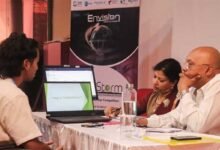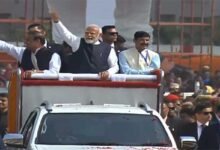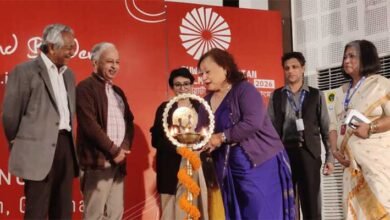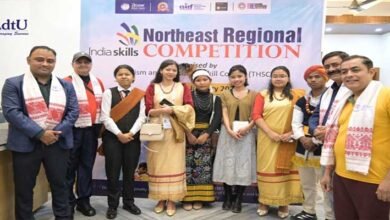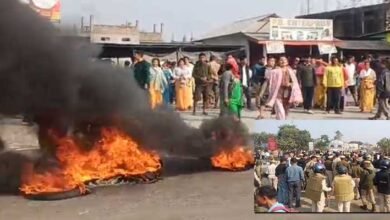Assam: International Conference on India’s Act East Policy Commenced at RGU
Emphasis on the socio-cultural ties of North East with South East Asia
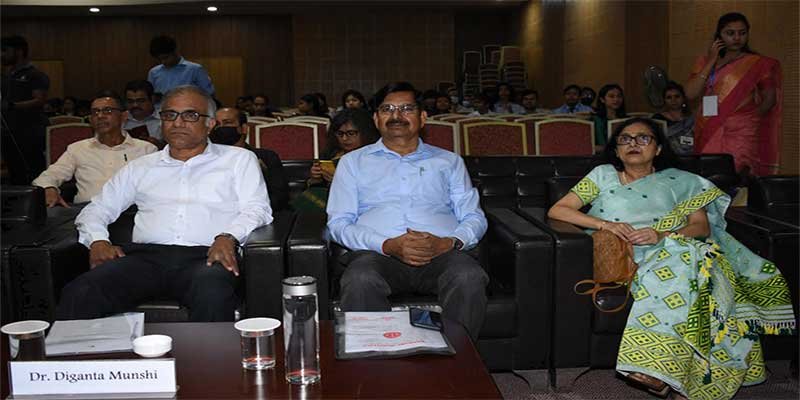
GUWAHATI- A two days conference on India’s Act East Policy and the Indo-Pacific Developments: Problems and Prospects with more than 130 delegates with around 50 research papers from India and abroad, commenced today at The Assam Royal Global University. The inauguration ceremony of the conference, hosted by ‘The Royal Centre for Act East Policy Studies’, was graced by Manvendra Pratap Singh (IAS), Secretary, Act East Policy Affairs Dept. as the Chief Guest with Dr. Shah Md. Tanvir Monsur, Assistant High Commissioner of Bangladesh, Guawahti and Phurpa Tshering, Vice Consul General of the Royal Bhutanese Govt. being the special invited guest.
Prof. (Dr.) Swabera Islam, the Convenor of the international conference delivered the welcome address, while eminent academician as well as policy maker Prof (Dr.) Akbaruddin Ahmed, Former VC, The Darul-ihsan University and Chairperson of Policy Research Centre (PRC), Dhaka delivered the key note address.
Plenary session of the conference has been addressed by Prof. M.P. Bezbaruah, Dept of Economics, Gauhati University and R.S. Joshi, Past Chairman of Federation of Industry & Commerce of North East Region (FINER).
Royal Global University Vice Chancellor Prof. (Dr.) S P Singh, Chief Advisor Prof. MK Chaudhuri, Chairperson (Academic) Prof. A K Buragohain, Executive Vice President Ankur Pansari and the Registrar of the university Dr. Diganta Munshi were present during the inauguration ceremony along with faculty and students of RGU.
Phurpa Tshering during his address to the gathering mentioned about the initiatives taken collaboratively by Indian and Royal Bhutanese Govt. as part of Act East Policy keeping in mind the ethno-cultural similarities as well as association between India’s North East and Bhutan.
Tsering said, “Bhutan shares a natural affinity with the region of North East that results in socio-cultural ties.”
Manvendra Pratap Singh, while delivering his address emphasized on the cultural similarities and multimodal transportation system that existed in between North East and South East Asia before independence and expected this legacy would push forward a bilateral connectivity in trade and commerce of the region with The Association of Southeast Asian Nations (ASEAN) and Bangladesh, Bhutan, India, Nepal (BBIN). He said, “Act East Policy is a key point of India’s External Affairs Policy will lead to socio-economic growth of the region that faced an economic stagnancy due to artificial closure of the trade routes after 1947.”
Akbaruddin Ahmed, in his key note address talked about the mutual advantage of sharing knowledge between the seven sisters and Bangladesh. He put forth the idea to ink an MOU with the university for exchange of knowledge on the same.
Emphasizing on the utilization of human resources from the region, Prof. M.P. Bezbaruah said, “to use this economy consisted of 50million people, our civil society has to be pro-active and also the region has to be internally integrated for a sustainable growth.”
This has further been supported by R.S. Joshi, when he said, “Change of perception about NE is possible with exploring the human talent by taking care of missing trade and commerce links in the Act East Policy with people as proactive members of this process.”
Highlighting the significance of such deliberation, Vice Chancellor Prof. (Dr.) SP Singh expected the discussions of the conference to “help in articulating the changes and modifications in policies of international trade to bring about desired benefits to this region.”
